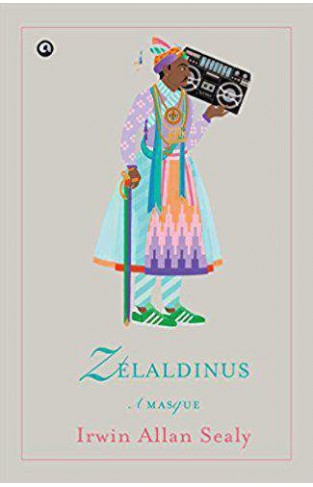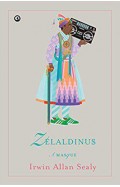Zelaldinus: A Masque
By: Irwin Allan Sealy
-
Rs 477.00
- Rs 795.00
- 40%
-

You save Rs 318.00.
Due to constant currency fluctuation, prices are subject to change with or without notice.
On a camel’s back hill beyond Agra stands a Redstone citadel altogether different from the white marble Taj Mahal. Fatehpur Sikri is the capital Akbar built to honour the saint who foretold the birth of his first son. In the inner court of the king’s palace is a broad stone terrace with a chequered pattern that resembles a game board. Here, accounts say, Akbar played a kind of chess using human pieces from his harem of three hundred. Costumed in various guises, his women would have presented lively masques upon this stage.Zelaldinus mounts such a pageant, glittering and fantastical, where past and present, nobles and commoners, history and fiction rub shoulders. Its variety of verse and prose forms evoke the carnival spirit of a masque. Underlying the depiction of a rich and varied court life at Sikri are reflections on kingship, a meditation on fathers and sons and a plot within a plot that tells a crackling story of love across the Pakistan border—while through it all strides the nimble ghost of Akbar himself. Jalaluddin (Zelaldinus) Akbar.
| Book | |
| What's in the Box? | 1 x Zelaldinus: A Masque - |
On a camel’s back hill beyond Agra stands a Redstone citadel altogether different from the white marble Taj Mahal. Fatehpur Sikri is the capital Akbar built to honour the saint who foretold the birth of his first son. In the inner court of the king’s palace is a broad stone terrace with a chequered pattern that resembles a game board. Here, accounts say, Akbar played a kind of chess using human pieces from his harem of three hundred. Costumed in various guises, his women would have presented lively masques upon this stage.Zelaldinus mounts such a pageant, glittering and fantastical, where past and present, nobles and commoners, history and fiction rub shoulders. Its variety of verse and prose forms evoke the carnival spirit of a masque. Underlying the depiction of a rich and varied court life at Sikri are reflections on kingship, a meditation on fathers and sons and a plot within a plot that tells a crackling story of love across the Pakistan border—while through it all strides the nimble ghost of Akbar himself. Jalaluddin (Zelaldinus) Akbar.
Zubin Mehta: A Musical Journey (An Authorized Biography)
By: VOID - Bakhtiar K. Dadabhoy
Rs 892.50 Rs 1,050.00 Ex Tax :Rs 892.50
If the Oceans Were Ink: An Unlikely Friendship and a Journey to the Heart of the Quran
By: Carla Power
Rs 5,665.50 Rs 6,295.00 Ex Tax :Rs 5,665.50
If the Oceans Were Ink: An Unlikely Friendship and a Journey to the Heart of the Quran
By: Carla Power
Rs 5,665.50 Rs 6,295.00 Ex Tax :Rs 5,665.50
The Art of Drawing Manga: A Guide to Learning the Art of Drawing Manga--Step by Easy Step
By: Talia Horsburgh
Rs 4,675.50 Rs 5,195.00 Ex Tax :Rs 4,675.50
Alexis de Tocqueville: Democracy's Guide (Eminent Lives)
By: Joseph Epstein
Rs 1,800.00 Rs 2,000.00 Ex Tax :Rs 1,800.00
The Party: The Secret World of Chinas Communist Rulers
By: Richard McGregor
Rs 2,035.75 Rs 2,395.00 Ex Tax :Rs 2,035.75
Zubin Mehta: A Musical Journey (An Authorized Biography)
By: VOID - Bakhtiar K. Dadabhoy
Rs 892.50 Rs 1,050.00 Ex Tax :Rs 892.50
If the Oceans Were Ink: An Unlikely Friendship and a Journey to the Heart of the Quran
By: Carla Power
Rs 5,665.50 Rs 6,295.00 Ex Tax :Rs 5,665.50














-120x187.jpg?q6)







-120x187.jpg?q6)













